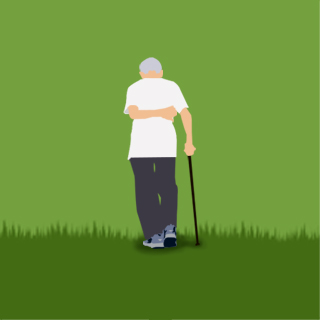
Various studies and researches are said to have suggested a link between walking difficulties faced by the elderly and their behavioral or psychological mechanisms. However, presently experts have begun analyzing potential psychological effects that may lead to walking difficulties in the elderly.
Earlier, it was believed that concern over one’s health could possibly motivate people to indulge in regular physical activities; however the present research reflects the possibility of the exact opposite effect that a concern of health may have on an individual.
This research was conducted by Kin-Kit Li, who at the time of the research was a doctoral student at the Oregon State University; in collaboration with Bradley Cardinal and Samuel Vuchinich, faculty members of the Oregon State University.
Bradley says that, “Our research shows that a key component to avoid walking difficulty in older adults is to resolve health worry issues earlier in life.â€
This research further states that techniques adopted by some health professionals, of terrifying the elderly with adverse effects that physical activity may avoid, may not succeed. Cardinal says, “Using threats and fear-tactics to encourage physical activity in older adults will not work.â€
Thus these researchers suggest an alternative to the use of health threats to encourage physical activity in the elderly. They state that evidence-based programs related to behavioral changes may prove to be more useful in encouraging the elderly to indulge in physical activities.
Their findings are present in the issue of the Research Quarterly for Exercise and Sport.
